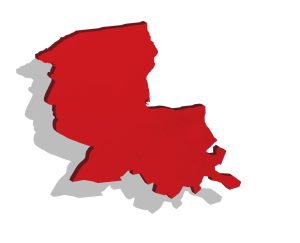Brain Waves: No one is invincible

November 19, 2015
This summer I learned that no one is invincible. Everyone needs help from time to time.
As a Yankees fan, an ESPN breaking news story about CC Sabathia checking himself into an alcoholism treatment center left me both saddened and relieved. I was relieved that he took the most crucial steps for himself by admitting he had problems and needed help. It’s an important reminder that even professional athletes are human beings first, with the same vulnerabilities as the rest of us.
Even professional athletes need help.
I always put down the most drinks at parties compared to my friends, even in high school. I had bouts of depression on and off during my younger years, but never underwent serious treatment for it, even when I really struggled. Coming from Westchester, New York, Tulane was a pretty big name for academic prestige. But New Orleans itself was known for one big thing: the drinking culture. I was excited about this more than anything else.
Things began to change once my parents left me on my own after move-in. I didn’t have a solid group of friends anymore. I actually became terrified of the possibility of partying too much and having that hurt my GPA, so I stayed in most of the time. I tried staying tight with my floormates, but that fizzled out pretty quickly once everyone went their separate ways that spring. I found myself lonely and lost, until I solidified my little niche within the fraternity I joined and the club sport I took up. Now things are different — both my affiliation with Greek Life and club sports got me invited to a lot of parties and I felt like I was finally getting my swagger back.
Fast forward to junior year. Long story short, I gained the reputation as “the drunk guy” — at parties, bars, you name it. I was rarely seen out and about without a double-whiskey-Coke in my hand. I can’t even count how many people I’d introduce myself to would say, “we’ve met before, but you’ve always been really drunk.”
I was sloppy, but I was funny. I loved making my friends laugh with my intoxicated, goofy antics. That’s really what drove me — my need for attention and my need to make myself useful through entertaining. And at a point in time, this was a blast and made me feel like the life of the party.
But this came at a cost. I forgot how to socialize without being under the influence. Meeting friends of friends, flirting, you name it — none of that ever happened sober.
Once my summer going into senior year was finalized, I was ecstatic to be staying in New Orleans for a relaxed, part-time internship during the day and doing whatever I wanted at night. I probably woke up hungover every day for about three weeks. Because of this, I was always too tired to exercise and too sick to eat — but I’d always heal up by nighttime, when it was time to go out and do it all over again. And at the time, I loved every second of it.
I wasn’t invincible. No one is. Everyone needs help from time to time.
On May 23, I got a phone call that I got fired from my night job. I blacked out no later than 10 p.m. the night before and had no idea how I managed to wake up in my own bed.
A major criterion for alcohol abuse involves how drinking affects your other aspects of life, such as family, friendships, work and school for examples. When you imagine someone with a drinking problem, you don’t think of a 21-year-old at a prestigious university. But addiction has no name, no face, no race or ethnicity, no socioeconomic background, no gender and certainly no age. And I knew that if I wanted to be the family member, friend, employee, student, teammate, etc. that I wanted to be to others, something drastic would have to change.
That’s when I made the hardest decision of my life — to put my internship on hold, leave my house and social life in New Orleans behind, and to go back home for treatment. The hardest decision of my life was also the best decision of my life. Don’t get me wrong, there have been many tremendous growing pains along the way, even some that I’m still dealing with, but this is what college is for; it’s for learning about yourself through these life lessons and conquering your fear of making scary short-term changes for the benefit of the long-term.
And you don’t necessarily have to take as drastic of an action as I did if you think your substance use is starting to cause other problems. Even making a one-time session with a Counseling and Psychological Services or Brief Alcohol Screening and Intervention for College Students counselor and discussing strategies can get you thinking enough to make a positive difference in your life. For those of you who’re in control, keep doing what you’re doing and I tip my hat off to you. But remember, no one is invincible. Everyone needs help from time to time; because whether you’re a student, or even a pro-athlete, you’re a human being first.









Leave a Comment